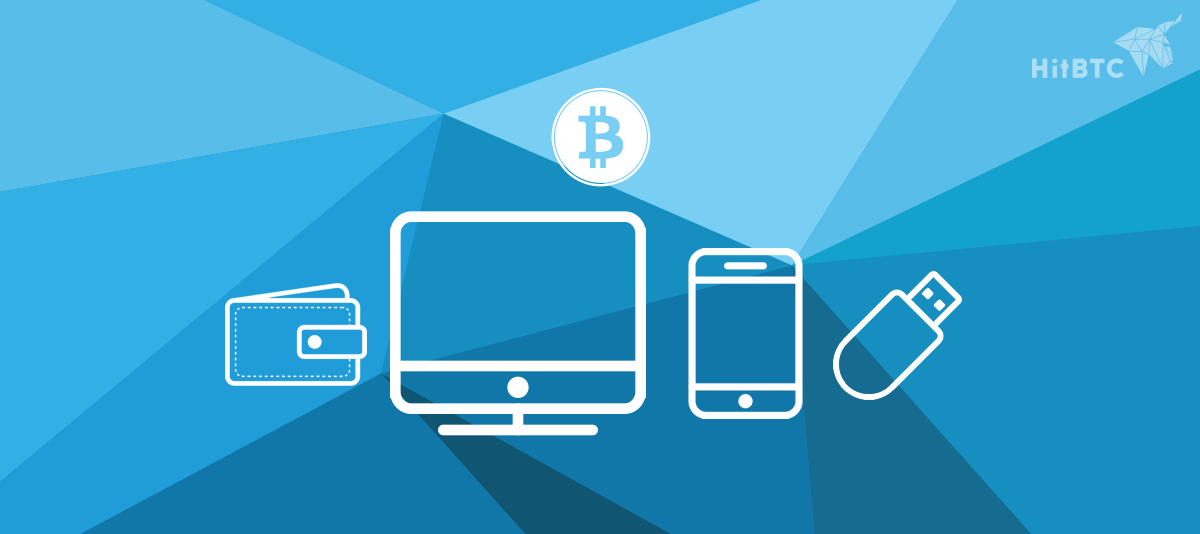Bitcoin Wallets

Firstly let’s explain what bitcoin wallets are:
Wallets are where you store your cryptocoins. As cryptocurrencies are essentially like digital cash, wallets are where you keep your cash. It is like a wallet because you can send, receive and store your coins in your wallet. How it actually works is this – instead of storing your cryptocurrency bitcoin wallets store your private keys that you need to access your bitcoin address and let you spend your funds. There are many different wallets that you can use, there are various wallets made for different devices. You could also print your keys out and have paper wallets – this is essentially safer in some ways if you keep it in a safe place. But remember, always have a backup, otherwise similarly to real wallets, if you lose it, you also lose your coins.
Let’s look at some of the different wallets:
Desktop Wallets
Desktop wallets are seen as one of the safest options. As I already mentioned there are various wallets available. I can’t say if one is better than the other, I’d rather point out that they are different and serve different purposes. The original bitcoin wallet is Bitcoin Core. It is a node on the bitcoin network and connects to other nodes to verify and relay transactions. It is one of the safest and works perfectly however on the downside it has less features than many newer wallets and takes up space and memory.
You could also use Multibit. This wallet is very easy to use and set up, so if you’re not that tech-savvy, this might be the one for you. If you happen to be an Apple fanboy you might want to use Hive. Hive is designed especially for OS X. Hive is simple and secure and also supports multi token – this means you can use it for other cryptos too, not just bitcoin. It also has a pretty cool location service Waggle. With waggle you can transact with other Hive users nearby. If you want the most security, you could use Armory – this wallet is designed specifically with security in mind. It’s the only wallet with cold storage and multi-signature support. Of course there are many others but let’s move on.
Mobile Wallets
Although desktop wallets are great they are not much use to you if you’re out and about and want to purchase something for bitcoins at a store. This is where mobile wallets solve the problem. There are many different apps, most very easy to use that let you send and receive coins just by scanning a QR-code. Some apps even let you use NFC. You can send and receive coins just by tapping another device. This of course is only useful for you if your device has NFC (Near-Field Communication). Some mobile wallets are – Bitcoin, Blockchain, Hive for iPhones and you can also have a mobile wallet for your Android smartwatch – Aegis.
Online Wallets
Online wallets, as the name implies, store your keys online. So essentially they can be both desktop and mobile you just access it through a browser. In a way that is convenient as you can access your coins anywhere. But it is done through a third party – so you are essentially giving someone else access to your coins. For example I myself had a negative experience with a web-based wallet and exchange who decided to stop selling bitcoin to Estonian customers. This happened once I had already made a deposit with them. So the money had left my account but I could not purchase bitcoins for it and it took them several days to return it. However on the other side – it can be very convenient having it all in one. As I already mentioned, a lot of web based wallets are also exchanges and they have their own mobile wallets that can be linked with your web-based wallets. Some of the online wallets are – Coinbase, Circle, and Blockchain.
Brain Wallets
Yes, you guessed it – this is a wallet that exists in your head. The concept is storing bitcoins in your mind by memorizing a passphrase. As long as this passphrase is not recorded anywhere the bitcoins can be thought of as only existing in your mind. However if you happen to forget the phrase or if the holder of the passcode dies the coins are lost forever. On one hand this is almost the safest way however on the other, completely the opposite as we humans do tend to forget things. Here’s how you can create a brain wallet.
Hardware Wallets
Alternatively you could use a hardware wallet. With hardware wallets you are not relying on a third party but it is more convenient than cold storage – which is essentially a piece of paper. Hardware wallets can also hold your keys digitally and you can even make payments. One of the hardware wallets is Trezor.
Paper Wallets
Paper wallets are cold storage. So they are very safe in the sense that they are completely safe from malicious attacks and hardware failure. On the other hand there is still the risk of human error – you could always lose the piece of paper if you’re not keeping it safe. You can read more about how to make a paper wallet here.
As you can see there are many different wallets available to suit many different wants and needs. The main thing you’ve got to keep in mind is – just like with your real wallet and bank accounts, always keep your bitcoin wallets safe. Don’t share your passwords and private keys with anyone and always have a backup. Because just like with a real wallet – you lose it, you also lose your coins.

